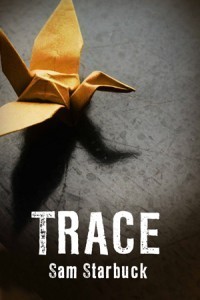Reesa Herberth's Blog, page 15
January 31, 2012
Random Interview – Chris Owen
Tell us a little about yourself. What do you like to write? What's your latest release about? What have you read recently that knocked your socks off?
I tend to write a wide variety of things, from cowboys to college kids to dimension hoping scientists who are fated to be with accountants. Historicals, mysteries, straight up (heh) romance, The latest few stories have been a pair of shorts (one due out next month!) about The People Of My Heart — geeks. Convention going, cosplaying geeks. The first of the two is called Night and Day: Jasmine, and is available from Torquere Press. The second will be published by them next month and is called Day and Night: Turquoise.
The latest novel is a co-write with Tory Temple, also from Torquere, titled By the Numbers. That one features a fireman named Trey who saves Deuce's dog from a blaze. Q then has a litter of puppies, and as a reward Trey gets the pick of the litter for his daughter. Of course he gets more than just a puppy…
My reading passion is mysteries, from cozies to hard boiled, from procedurals to pulps. My absolute favourites are by Rex Stout, but you're just as likely to find me reading Ellis Peters, Ian Rankin, or Conan Doyle. I love the American private eye style, and I tend to prefer long series over one offs.
What's your favorite beer?
Mill Street Organic, from Toronto. It's not only a light beer with almost no booze (I think it's 4.2%) but it tastes great. Definitely my go to summer beer — which I drink all year long when I have beer. My husband loves really dark beers, from stouts to porters, but I'm a 'clear beer' girl all the way.
Do you build your characters layer upon layer or do they spring to life fully functional in your mind?
That implies I think about it.  Usually what I do is pick a typically 'male' profession (hello, cowboys), figure out the name, and start writing. On occasion I've done things right from the beginning because I wanted an exercise — when Jodi Payne and I started Deviations I told her I wanted to make Tobias wealthy because I'd never written a story where just about anything can be purchased. Also, I wanted him to have his grand stables to play in, and that set up can only happen with wealth. It was really interesting what a change that made to Tobias' personality.
Usually what I do is pick a typically 'male' profession (hello, cowboys), figure out the name, and start writing. On occasion I've done things right from the beginning because I wanted an exercise — when Jodi Payne and I started Deviations I told her I wanted to make Tobias wealthy because I'd never written a story where just about anything can be purchased. Also, I wanted him to have his grand stables to play in, and that set up can only happen with wealth. It was really interesting what a change that made to Tobias' personality.
What is your ideal writing environment?
Anywhere not a desk. I write in bed, in my comfy chair, on my back deck, at the library, waiting for my children to finish a fencing lesson, while watching a movie in the living room, at the kitchen counter while making soup. I write all over the place. The only thing that I need to get a serious word count in is quiet. I can drop a couple hundred words while watching TV, but when the deadline looms I need hours of silence and a broken internet connection.
Do YOU hear the people sing?
Only at the theater. 
What is the most esoteric piece of personal knowledge that you've ever worked into a story? (i.e. If your day job is as a paralegal for a civil firm, you work something about probate into a story.)
I once referenced Etruscan art; I think it was in Acquired Tastes. I've also worked in bits and pieces of my own life here and there — Scott's book collection in 911 is mine, and all things related to knitting are me. I had to delete a scene in Acquired Tastes because I'd started one college student talking about literary deconstruction and he didn't shut up for a couple pages.
Fight or flight? You can interpret that any way you want.
I'm a big fan of running away to run away another day. Cowboys will always stand and fight, though.
Tell Me Tuesday – 01/31/12

Tell me about this picture. What it makes you think of, who took it, what you see that someone else doesn't. Write a story, a poem, a comment, an essay. Leave a picture of your own.
Tell me something.
(If you write something on your own blog, leave a link here so we can all enjoy it. Or, if you prefer, go crazy in the comments.)
January 25, 2012
WIP Wednesday
So we're closing in on the end of Peripheral People and I'm experiencing a wee bit of stress. Without a doubt, this is the most intricately-plotted novel I've ever been a part of (Reesa doesn't get to claim that. Her Memory Keeper is mind-blowing!) so I feel like I have to keep re-reading and checking and re-reading again to make sure I stay on top of things. Now more than ever, since things are lining up for that
As I may have mentioned before, my favorite book tends to be the one I'm currently working on, so that moves Peripheral to the head of the line. It's also done a pretty stellar job at pushing all other WIPs not only to the back of the line, but over a cliff as well. It's all Peripheral, all the time! Twenty-four hours a day! Live it, breathe it, sleep it!
So anyway, if you find me a little remote or scattered or, well, outright grouchy, that's why.
January 24, 2012
Tell Me Tuesday – 01/24/12

Tell me about this picture. What it makes you think of, who took it, what you see that someone else doesn't. Write a story, a poem, a comment, an essay. Leave a picture of your own.
Tell me something.
(If you write something on your own blog, leave a link here so we can all enjoy it. Or, if you prefer, go crazy in the comments.)
January 23, 2012
What was that name again?
There's a reason I tend to stay out of book discussions amongst my friends. Well, okay, and movie and television discussions as well. I can't remember anything. No, seriously, I can't. It'll take me at least two reads of a novel before I remember character names, even main characters. Plot lines are a little easier, at least in a general way. Specifics are usually a washout. And keep in mind that I only read things I LIKE. This can be particularly frustrating at conventions when everyone is having these interesting conversations and I'll think "Damn, that sounds familiar but I really don't want to make a complete idiot of myself, so I'll just shut up."
Now, what's really odd and problematic about this? It happens with my own writing! I mean, come on. Who doesn't remember the names of characters they created? Or their own plot lines? It's not right. But then again, it explains why my favorite book is always the one I'm currently writing. I stand a chance of recalling something about that! Same with favorite characters. During Slipstream, it was Kellen, hands down. Balance? Riv. Well, okay, Riv still holds a special place for me. Now, while finishing up Peripheral People? It's all Corwin and West, baby!
Ginkgo biloba cocktail, anyone?
January 16, 2012
Hop, hop, hop BANG
Disclaimer: The author in no way advocates the hunting of cute fuzzy little bunnies
So I've noticed a disturbing trend in things I've read recently. Point of view issues. As in switching the PoV not only multiple times within a chapter with no delineation, but sometimes from paragraph to paragraph. And while cute fuzzy little bunnies hopping around in a frenzy might be adorable, uncontrolled head-hopping in a story? Not so much.
I'm the first to admit that it took awhile for me to even understand what point of view was. I remember a very patient English teacher in high school going over and over it until something finally clicked. So yeah, if it were the case of an author not understanding, I might be more sympathetic. Um, no, kidding. These are professionally published books.
So maybe it's deliberate. A case of being all avant garde and bucking those creativity-stifling stylistic rules. To that I say piffle. Okay, it was actually something a little ruder, but I'm trying to cut down on offensive language this year. Me, that is. Not my characters. But I digress… Style rules usually exist for a reason. To create readable prose. Sure, you can bend 'em a little, maybe even break a few (a FEW!) here and there, but over-all you really need to follow them. Use periods. Use quotation marks. And for goodness sake help the reader know who is talking and/or thinking!
December 20, 2011
Tell Me Tuesdays – December 20, 2012

Tell me about this picture. What it makes you think of, who took it, what you see that someone else doesn't. Write a story, a poem, a comment, an essay. Leave a picture of your own.
Tell me something.
(If you write something on your own blog, leave a link here so we can all enjoy it. Or, if you prefer, go crazy in the comments.)
December 13, 2011
Tell Me Tuesdays – December 13, 2011

Tell me about this picture. What it makes you think of, who took it, what you see that someone else doesn't. Write a story, a poem, a comment, an essay. Leave a picture of your own.
Tell me something.
(If you write something on your own blog, leave a link here so we can all enjoy it. Or, if you prefer, go crazy in the comments.)
December 6, 2011
Tell Me Tuesdays – December 6, 2011

Tell me about this picture. What it makes you think of, who took it, what you see that someone else doesn't. Write a story, a poem, a comment, an essay. Leave a picture of your own.
Tell me something.
(If you write something on your own blog, leave a link here so we can all enjoy it. Or, if you prefer, go crazy in the comments.)
November 30, 2011
Random Interview – Sam Starbuck
Today we welcome author Sam Starbuck, a personal favourite of mine. Sam's quick-witted writing style and DIY approach to writing and publishing are the best rebuttal I can think of to anyone who insists that self-publishing means a lack of quality. But as LeVar Burton would say, don't take my word for it- check out any of Sam's books in .pdf format for free. – Reesa
Tell us a little about yourself. What do you like to write? What's your latest release about? What have you read recently that knocked your socks off?
Sam: I used to write a little bit of everything. In my twenties I was pretty proud of the fact that I could shift gears between comedy and drama, jump across genres, and emulate styles. I used to think it was strange that we have this idea of a writer as someone who picks a genre and sticks with it, but as I get older I think I understand it better, because you do start to feel like you want to stop doing everything "pretty well" and start doing one thing to the absolute best of your ability.
My latest release, Trace, sort of helped me choose somewhere to focus, because I've dabbled with magical realism in the past but I really got to dig into it with Trace, and I loved that. Magical Realism is nice because you get that element of fantasy, the idea that anything is possible, without having to build a whole new world and without the stigma that sometimes comes with High Fantasy in particular.
As for what I've read – well, recently I read the entire collected novels of Bret Easton Ellis, and while he has his flaws as a writer I was consistently floored by his skill and his ability to tackle difficult subject matter. He has a facility for escaping labels that is truly impressive; each of his books is slightly different and defining in their own way, so that he never really gets put in a box of "you write like this" even though all his novels are stylistically similar. In particular I enjoyed Lunar Park, because Ellis wrote it in response to a slam on him by Stephen King, and I love that attitude, that "Oh, you think I can't do this? Watch me," streak that allows writers to push their limits. And as much as I love Stephen King, Ellis writes better endings than King does.
If you could steal one thing in the entire world without consequence, what would you steal?
Sam: That's tough. I think sometimes the joy of stealing comes from the knowledge that you're not suffering consequences you should – there's always a guilty pleasure in knowing you've worked the system or escaped punishment.
There's a famous art theft that still gets a lot of attention, the theft of several paintings from the Isabella Stewart Gardner Museum in Boston. Everyone always talks about The Vermeer, the painting by Vermeer called The Concert which is one of the stolen works, but I've never been that enamoured of The Concert. I think if I could steal anything in the world, I would steal back the Rembrandt that was stolen, Storm on the Sea Of Galilee. I find it a much more compelling piece, plus it's the only seascape Rembrandt ever painted and he put himself in it, grasping a rope and looking straight out at the viewer. If I could steal anything, I'd find that painting, steal it back, and maybe keep it around the place for a few days before giving it back to the Gardner.
How many of your daily meals make it into your writing? (That is, if you make pecan waffles on Saturday mornings, do you ever have a character do the same?)
Sam: This is such an appropriate question for me! I love to put food in my writing, because food is such a pressure point for most people. The food you ate growing up, the food you like best, it affects you, brings back memories or creates feelings.
I do a lot of experimental cooking but I'm pretty unimaginative in my actual day to day eating habits, so I've been teased before for always making my characters eat the same thing. Spaghetti and meatballs is an easy dish and it's comfort food to me, so my characters used to eat it a lot before it was pointed out to me that maybe I should vary the literary menu a little. But when I'm giving a character a meal, I still tend to think about what I ate in the past few days, and what would be appropriate for them to eat.
Which means my characters rarely eat vegetables.
When I was writing Trace, I had a hard time because one of the major plot points involves someone turning the food rotten, so most of the descriptions of the food in Trace were really ugly: gritty half-cooked oatmeal, pizza with mold growing under the cheese, carrots with brown spots. I got a lot of feedback from early readers about how gross the food descriptions were, which helped me to develop this theory of food as an emotional prod for lots of people.
What is your ideal writing environment? – Submitted by Carl
Sam: Quiet, dark, and not too warm. Temperature changes really bug me for some reason, and I hate being too hot, so that's a huge factor in how well I write. Noise I can deal with, as long as it's not something I actually have to be paying attention to. And I like dim lights just because it feels more private that way, and I like privacy when I write.
Also I hate uncomfortable chairs. I'd rather lie on the ground than sit on an uncomfortable chair, which is probably the reason I've used laptops for writing exclusively since 1999.
What's a label that people apply to you, that you wish they wouldn't?
Sam: You know, it's not that I deliberately don't pay attention to the labels other people give me, it's just that usually I'm totally oblivious to them. I don't really know, often, how other people see me. I find that labels matter less on the internet because half the time you don't see them, and if someone tried to label me as a writer and it bothered me, I'd just write something outside that zone. But I don't really mind labels, on the rare occasions I actually stumble across them.
When I was in high school, I got labeled as "scary" not because of anything I did or any way I dressed but because I was smart. That did bother me, because I didn't have many friends and I didn't like the idea that I was losing out on friends because people were scared of me. What was I going to do, smack them around with my brain?
Sam's latest release, Trace, is available now. Check out the excerpt.
ONE
THEY SAID A lot of things about Colin Byrne in prison, once he was no longer there.
They said that he was a con artist, that he could sweet-talk anyone and make cigarettes and scraps of paper disappear like a stage magician. He'd show you he was a pickpocket, given half a chance, by picking yours. They said he was a snitch – that there was a cop on the outside who was his lover (that this lover was a woman; that this lover was a man). They said he was in tight with the Five Families, the Bloods and the S.M.M. boys they ran with, La Mugre, the Aryans. The Aryans denied it, but everyone said that was because he stole one of theirs before he left.
He once shanked a guard so stealthily that the man didn't even notice until ten minutes later, and they never did figure out it was him. He didn't kill him, just made him writhe a little, for some unnamed insult he'd suffered at the guard's hands.
He could get you anything you wanted. He knew what you wanted even when you didn't. He'd show it to you, and you'd know, and then he'd name his price.
He had nicknames on the inside: the guards called him Cat, the inmates called him Suicide.
In dark corners, in quiet voices, at other times they said this: that he could do magic, real magic, prison magic. He'd once drawn a bird so real it flew off the page. He couldn't be tattooed; the ink ran out of his skin while he slept. He could walk through prison bars. He could tell your fortune by looking in your eyes. If you gave him a lit cigarette, he could hypnotize a man just by flicking it back and forth. He could steal your soul if you let him draw you, but he wouldn't (but he had once). His name wasn't even Colin Byrne.
They said that he was a ghost who'd just disappeared one day, straight out of his cell, and he'd taken one of the Aryans with him. They said he'd come back. Some people believed it; some didn't. Gutierrez, who talked to God, said there was a priest who owned his shadow.
All of it was true. More or less.



